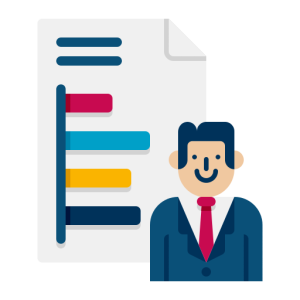CPACC Practice Exam 2025

A Certified Professional in Accessibility Core Competencies 2025 is a credential that proves you have fundamental knowledge of accessibility laws, standards, and management strategies. This certification is similar to a driver’s license in that it validates your knowledge of the basics of accessibility.
This certification can help you improve your career opportunities. It also allows you to provide a better service to persons with disabilities.
Free CPACC Practice Test Online
CPACC Certification
CPACC certification is an excellent way to demonstrate your knowledge and commitment to digital accessibility. This credential will give you a competitive advantage when applying for jobs or contracts that require knowledge of accessibility best practices and standards. It will also help you stay current with new technologies and trends in the field.
The CPACC exam covers many topics, including types of disabilities, universal design for learning, and accessibility-related laws and standards. It is a great place to start if you are new to the field and want to get a better understanding of accessibility basics. The exam is very rigorous and requires a lot of reading, but it can be well worth the investment.
Having a CPACC does not make you an expert in the field of digital accessibility, but it can be very helpful in your career. It will prove to employers that you have a solid understanding of the field and can advise them on how to make their organizations more accessible. It will also help you find opportunities for advancement in your company.
CPACC Certification Cost
Getting certified in web accessibility is a great way to increase your employment opportunities. Having a certificate will show that you know what you’re doing when it comes to making your sites and applications accessible for all. It will also make you stand out from other job applicants. However, it is important to remember that the CPACC certification costs money. This makes it a tough decision to take for many people.
The CPACC is a professional exam that focuses on the fundamentals of accessibility. It is designed for individuals who work with web development, software, and mobile devices. It covers topics such as disability types, assistive technologies, and accessibility laws and standards.
The CPACC is designed for technologists, creatives, and engineers, but it’s also good for leaders and strategists who have a holistic view of accessibility. This is essential, because the only way to ensure that web accessibility works at scale is for all roles to be involved. And it’s impossible to do that without a strong support system.

CPACC Exam
The CPACC Exam, also known as the Certified Professional in Accessibility Core Competencies exam, is an exam offered by IAAP to individuals seeking certification as accessibility professionals. This exam is not for beginners, and it requires extensive knowledge of accessibility-related standards and laws. It also requires a good understanding of how to identify and resolve accessibility issues.
There are several resources available to help individuals prepare for the CPACC exam. These resources include self-guided packages and single courses from Deque University, as well as a limited set of sample questions. Sample questions are designed to test your comprehension of topics, but they do not represent the format or difficulty level of the actual CPACC exam.
It is important to read the exam objectives for each certification before proceeding. These objectives are normally provided by the exam provider, and they will help you understand what is required to pass the exam. Additionally, if you find that the CPACC exam is too difficult, you may want to consider taking a lower-level exam.
CPACC Exam Dates
There are a variety of resources available to prepare for the CPACC exam. Each one is designed to provide you with the information you need to pass the exam. Whether you are looking for a comprehensive study guide or just a few practice questions, it is important to find the right ones for your needs. It is also important to note that each test has different requirements and may be more difficult than others.

Those who have successfully passed the CPACC exam can apply for the Web Accessibility Specialist (WAS) credential. This certification is for individuals with regular hands-on experience in writing, remediating, or identifying accessibility issues in code. It requires a high level of detail and knowledge of programmatic code elements, the WCAG standards, and their contextual implications for end users of assistive technology.
The CPACC exam is held once a year. It is currently scheduled for May 9th, 2025 at the M-Enabling Summit in Minneapolis, Minnesota. You can apply for the CPACC and WAS exams at the same time.
CPACC Exam Questions
CPACC exam questions are designed to mimic the real thing, so you can get a feel for what the test will be like. They’re also a great way to test your knowledge and identify areas that you need to work on before taking the exam.
The CPACC certification is the professional-level credential and represents broad, cross-disciplinary conceptual knowledge about 1) disabilities, 2) accessibility and universal design, and 3) accessibility-related laws, standards, and management strategies. It’s a good choice for people who manage and support accessibility, but do not work on the technical details of accessibility solutions. For those who want to work at a more technical level, IAAP offers the Web Accessibility Specialist (WAS) credential.
The CPACC exam is challenging for even the most experienced accessibility professionals. But the benefits of being a CPACC-certified professional are significant: Individuals with disabilities will see increased opportunities for employment, businesses will reap the benefits of more consumers, and medical professionals will have better communication skills when dealing with patients with disabilities. These changes will eventually lead to the day when accessibility becomes standard in every aspect of society, not just in business and government.

CPACC Study Guide
To pass the CPACC exam, you need to study for about 80 hours. You can find many study guides online. One of the most popular is the Deque course. This course is available for a low price and includes self-test quizzes and links to external resources for further study. This is a great way to prepare for the CPACC exam.
The CPACC certification is beneficial for any business with an online presence. It will help you avoid discrimination lawsuits and ensure that your website is fully ADA-compliant. It will also improve your search engine optimization and allow you to reach a wider audience.
Regardless of your career field, accessibility is an important issue for everyone. You can become a part of the movement to make the world more accessible by earning your CPACC certification. Whether you work in web development, engineering or IT, there are plenty of benefits to this credential. Moreover, it will help you build a community of disability allies and learn about new strategies for inclusion. This will benefit you in all of your future endeavors.
CPACC Training
The CPACC is a credential that demonstrates a broad understanding of accessibility principles and practices. It is intended for practitioners in domains where thoughtful design and policy management can improve disability access, such as the web and other digital technologies. The CPACC also addresses the design and management of built-in environments, consumer products, and infrastructure systems.
The first step in deciding which accessibility certification to pursue is to research the different options available. There are many online courses that offer a variety of certificates for people who complete them. However, it is important to note that these certificates are only proof of attendance and do not imply any level of knowledge or skill.
In addition to the CPACC credential, IAAP offers other credentials focused on specific domains. The WCAG Web Accessibility Specialist (WAS) and WAP Mobile Accessibility Practitioner (WAPMP) certifications both require an additional exam to be certified. Both of these credentials are valid for three years and must be renewed by earning Continuing Accessibility Education Credits through professional development activities.
IAAP CPACC Certification Preparation Course
The International Association of Accessibility Professionals is a membership-based organization that promotes accessibility through training, advocacy and certification. It offers five different credentials, which each have their own benefits.
The CPACC is the entry-level credential, intended to demonstrate a broad, cross-disciplinary knowledge of accessibility principles and practices. It targets individuals whose job duties include managing or supporting accessibility, but who may not be involved in the design or implementation of accessible solutions. The WAS is an intermediate-level credential that focuses on implementing, testing and resolving accessibility issues in web content. It follows the WCAG 2.0 standards and is appropriate for developers, testers, and IT professionals who support accessibility initiatives.
The BIT Academy offers a 13-week, fully remote pilot course that prepares students to take the IAAP CPACC and WAS exams. The class includes 2 hours of live virtual classes each week, plus a library of resources that expand on the topics discussed in each session. The course also covers the WATS Body of Knowledge, which supports exam preparation.
CPACC Questions and Answers
CPACC has not yet been tested on humans and is currently in the preclinical stage of research. As a result, the general public cannot use or acquire it. The drug’s developers have submitted a patent application and intend to carry out additional studies to gauge its efficacy and safety in humans.
The CPACC Exam Preparation Course lasts for roughly 5 to 6 hours. The IAAP advises scheduling between 30 and 80 hours in total for preparation.
CPACC stands for Certified Professional in Accessibility Core Competencies.